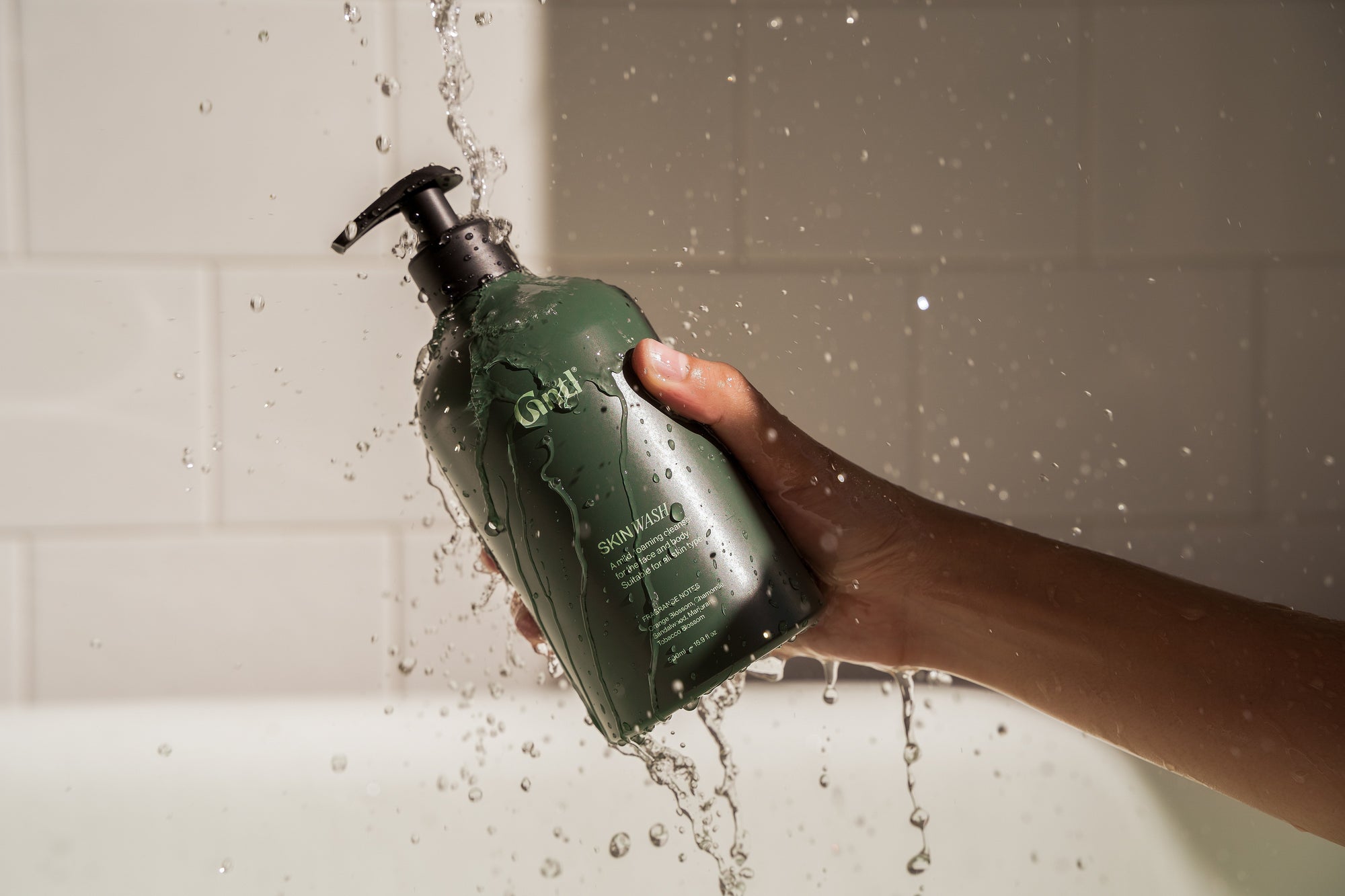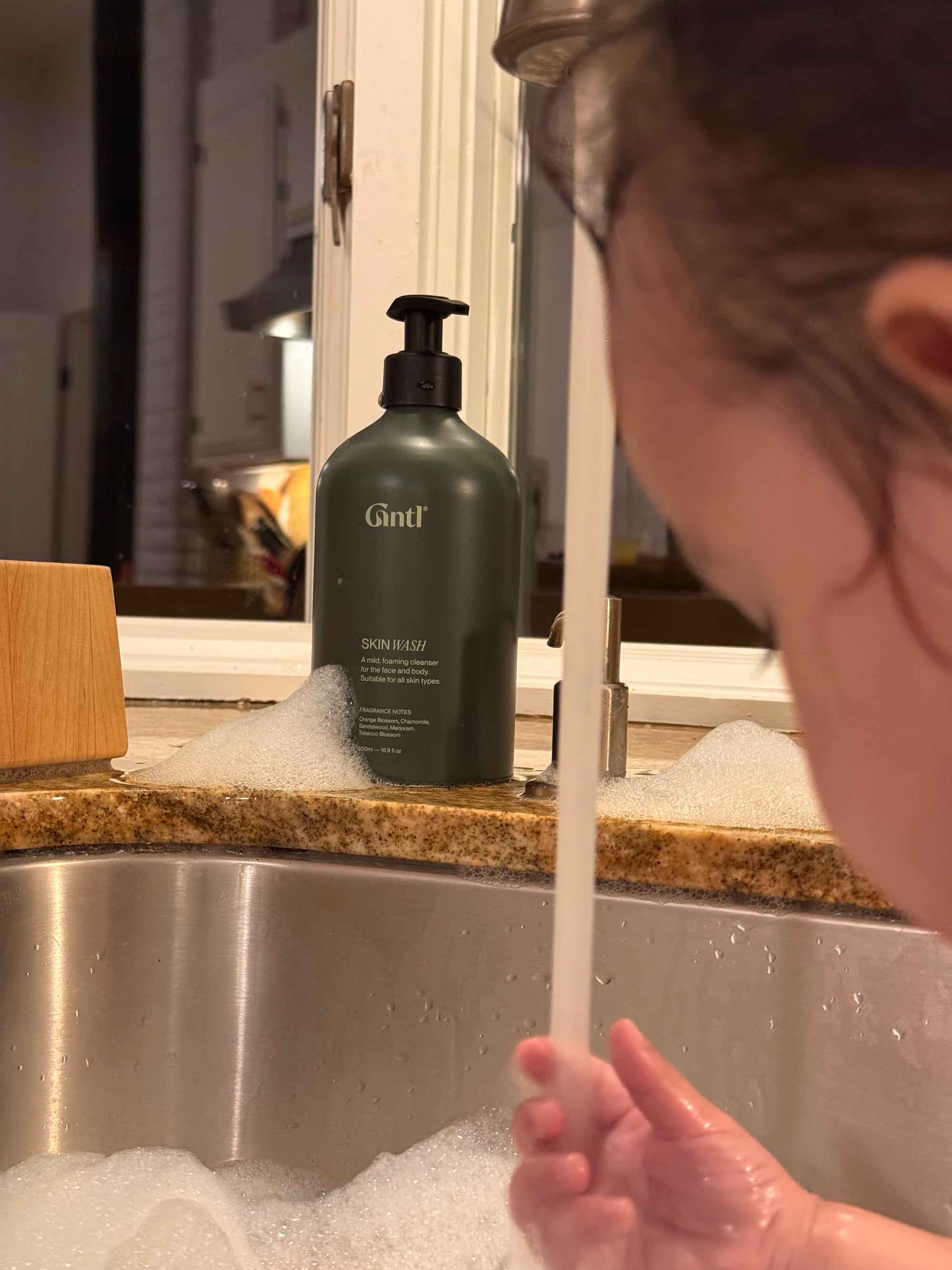In a world where 10-step skincare routines are celebrated and "shelfies" showcase dozens of bottles and jars, a countermovement is gaining momentum: skincare minimalism. Beyond just decluttering your bathroom shelves, this approach may actually be the key to not only healthier skin but also a happier mind. Let's explore the fascinating psychology behind why fewer skincare products can lead to greater wellbeing.
The Paradox of Choice
Psychologist Barry Schwartz famously coined the term "paradox of choice" to describe how having too many options can actually lead to decreased satisfaction and increased anxiety. When faced with an overwhelming array of choices, we often experience decision fatigue, which drains our mental energy and can lead to poorer decisions.
This paradox plays out vividly in our skincare routines. Standing before a bathroom cabinet filled with serums, essences, toners, and treatments, many of us experience a moment of paralysis: Which product should I use tonight? In what order? Am I missing something important? Rather than feeling pampered, we feel pressured.
A minimalist routine—with fewer, more thoughtfully selected products—eliminates this daily decision fatigue. The mental clarity that comes from having just 2-3 quality products that you trust completely can be profoundly liberating.
The Endowment Effect and Sunk Cost Fallacy
Have you ever held onto skincare products you rarely use simply because you spent money on them? This common behavior stems from two psychological principles: the endowment effect (valuing things more highly once we own them) and the sunk cost fallacy (continuing a behavior based on previously invested resources).
Together, these biases keep us clinging to products that don't serve us. A minimalist approach encourages us to be honest about what truly works for our skin and to let go of the rest, freeing us from the subtle guilt of unused purchases.
Mindfulness and Presence
A simpler routine naturally encourages greater mindfulness. When you're not rushing through multiple steps to "get it all done," you can focus more deeply on the sensory experience of each product—its texture, scent, and how it feels on your skin.
This mindful approach transforms skincare from another task on your to-do list into a moment of self-connection. Many who embrace skincare minimalism report a greater appreciation for their daily routine, seeing it as a ritual rather than a requirement.
The Licensing Effect
Psychology research has identified something called the "licensing effect"—the phenomenon where doing something virtuous (like a complex skincare routine) can make us feel entitled to make less healthy choices in other areas.
By simplifying our skincare, we avoid the false sense that we're "taking exceptional care" of ourselves through products alone, which can sometimes give us mental permission to neglect more fundamental aspects of wellbeing like sleep, hydration, and stress management.
The Psychology of Consumerism vs. Contentment
The beauty industry thrives on creating a sense of lack—the feeling that you're just one product away from perfect skin. This constant striving is at odds with psychological wellbeing, which research shows is more closely tied to gratitude and contentment with what we already have.
Skincare minimalism encourages a shift from acquisition to appreciation. Rather than constantly seeking the next miracle product, we learn to work with our skin's natural processes and appreciate its resilience.
The Environmental Impact on Mental Wellbeing
A growing body of research suggests that environmentally conscious choices positively impact our mental health. Knowing that your streamlined routine generates less waste—fewer plastic containers, less product ending up washed down drains—creates a sense of alignment between your values and actions.
This alignment reduces cognitive dissonance and fosters a sense of integrity that contributes to overall psychological wellbeing.
Finding Your Minimal
Minimalism doesn't necessarily mean using just one product (though it could). Rather, it's about intentionality—choosing products thoughtfully rather than impulsively, understanding what your skin truly needs rather than what marketing suggests it wants.
For some, a minimalist routine might include 3-4 essential products. For others, it might be a single multi-use product that serves several purposes. The goal isn't deprivation but discernment—creating space for what matters by eliminating what doesn't.
Embracing the Journey
Transitioning to skincare minimalism is often a gradual process. As you simplify, you may notice not only improvements in your skin (which often reacts well to consistency and simplicity) but also shifts in your relationship with yourself.
Many report feeling a growing sense of sufficiency—the realization that you were already enough, and that your worth was never tied to the complexity of your routine or the number of products on your shelf.
In a culture that often equates more with better, choosing less becomes a quiet but powerful form of self-affirmation. By embracing skincare minimalism, we're not just decluttering our shelves—we're reclaiming our sense of what truly matters, one less product at a time.
All you need is less. Discover how Gntl's multi-functional Skin Wash can replace multiple products in your routine while delivering better results for your skin and peace of mind.


